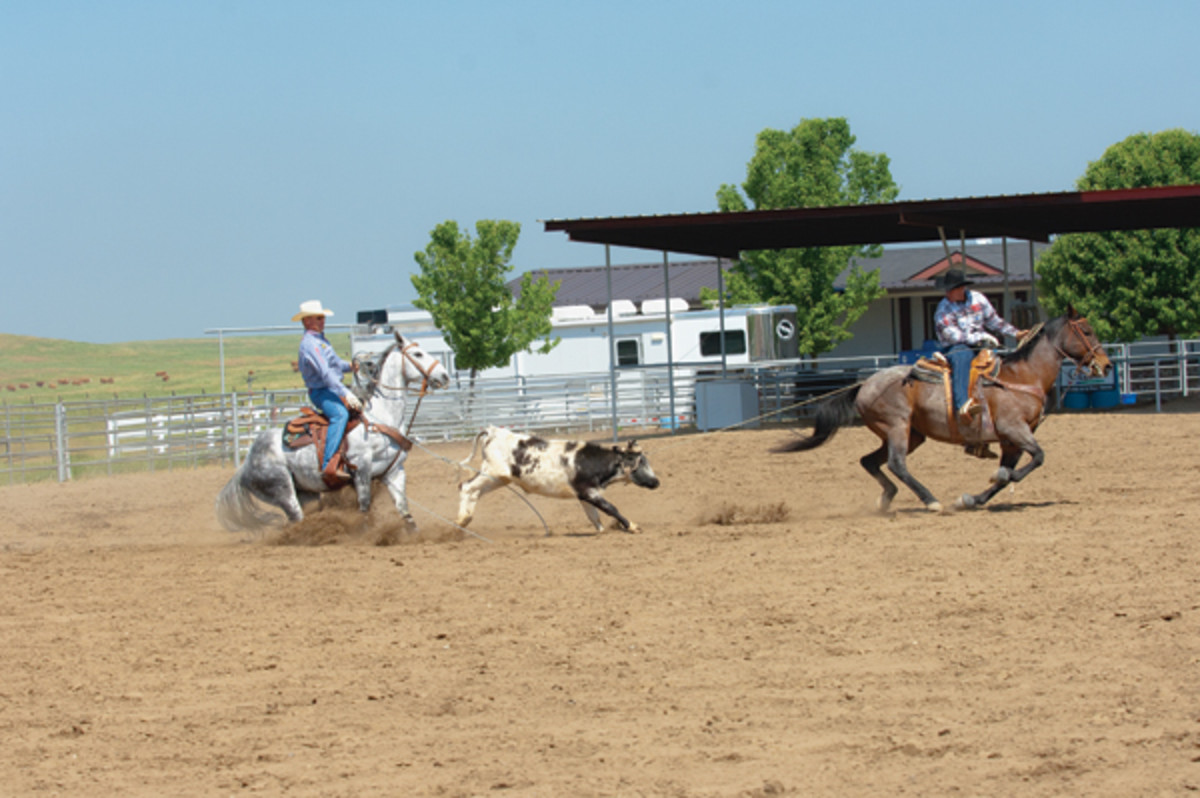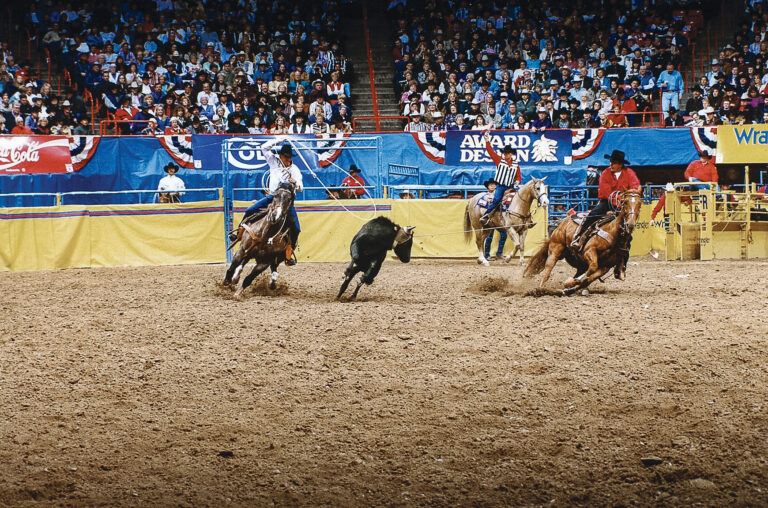
You can’t really put a true value on a horse. If you have talent, the better horse you have the more successful you’re going to be. The way I look at it, the value of a horse is what you can recoup by winning on him. How do you put a value on what Scooter did for Charles Pogue’s career, what Walt did for Travis Tryan’s career, or what Barney did for mine? Money can’t buy horses like that, because you can’t replace them. Here’s how I look at it: If someone said, “Jake, I’ve got the best horse in the world, and you can win on him whether you’re at Tucson, the BFI or the NFR, but I want 25 percent of what you win.” I’d do that deal if every time I nodded my head I had a chance to win. By my math, if you pay $10,000 for a horse, you have to win $40,000 on that horse for him to have been a good buy for you. If it took you four years to win that, it probably wasn’t worth it and you didn’t click good enough to make it make sense. If you give $10,000 for one, and win $40,000 on him in two months, that was a great investment. A great horse can turn your whole career around, kind of like what happened with me when I got Barney several years ago. I went from not winning much to being competitive every time I nodded my head. That horse completely revived my career. Then when I retired him, I was back to square one again.
The guys who rope for a living are the ones who typically have to take the gamble when they buy a horse. Most horses haven’t been tested at all levels or at this pace. They’re on the greener side, and have only been to smaller jackpots.
The horse business is buyer beware. A lot of horses people sell these days have never been behind a rope barrier, because they’ve only been to ropings where an electric eye was used. So they’re likely to jump the barrier for a while. A horse like that probably isn’t used to the crowd noise either. He might never have been in an indoor arena with thousands of people screaming, or around the flags and fireworks. It doesn’t matter how talented a horse is, if he hasn’t seen all that he’s usually going to be really nervous. The top horses in rodeo are typically a little older. They have the talent, and they’ve seen it all.
There aren’t very many people who’ll let you throw their horse in the trailer and haul him to five rodeos to see if he’s the real deal or not. But that’s about the only way you can see if a horse can take it or not. When you ask a horse for his life to try to win first, you never know how long he’ll take that and keep giving you all he’s got. It’s nice to know if a horse can handle the pressure before you lay your chips down. If a horse cracks under pressure, he’s worthless to a guy trying to make a living.
To use round numbers as an example, if you give $50,000 for a horse and your expenses are $50,000 to stay out on the road, that’s $100,000 before you say go. And that doesn’t include your expenses at home. Somehow, you have to figure out how to make that work, whether you pay for that horse with sponsor money, by teaching schools or whatever the case may be. Unless you have a trust fund, you have to be able to balance your books.

A horse is worth what you can get for him. And if you’re the buyer, a lot of it depends on your finances. If you really want a horse and can afford to pay a lot of money for him knowing you can’t win that back, more power to you. Most of us can’t do that. A good horse is an investment for us, so we have to be able to pencil it out and justify the purchase price.
Ready to look for the right horse for you? Go to Equine.com, the premier classifieds site of the Equine Network, to search for the perfect horse!










